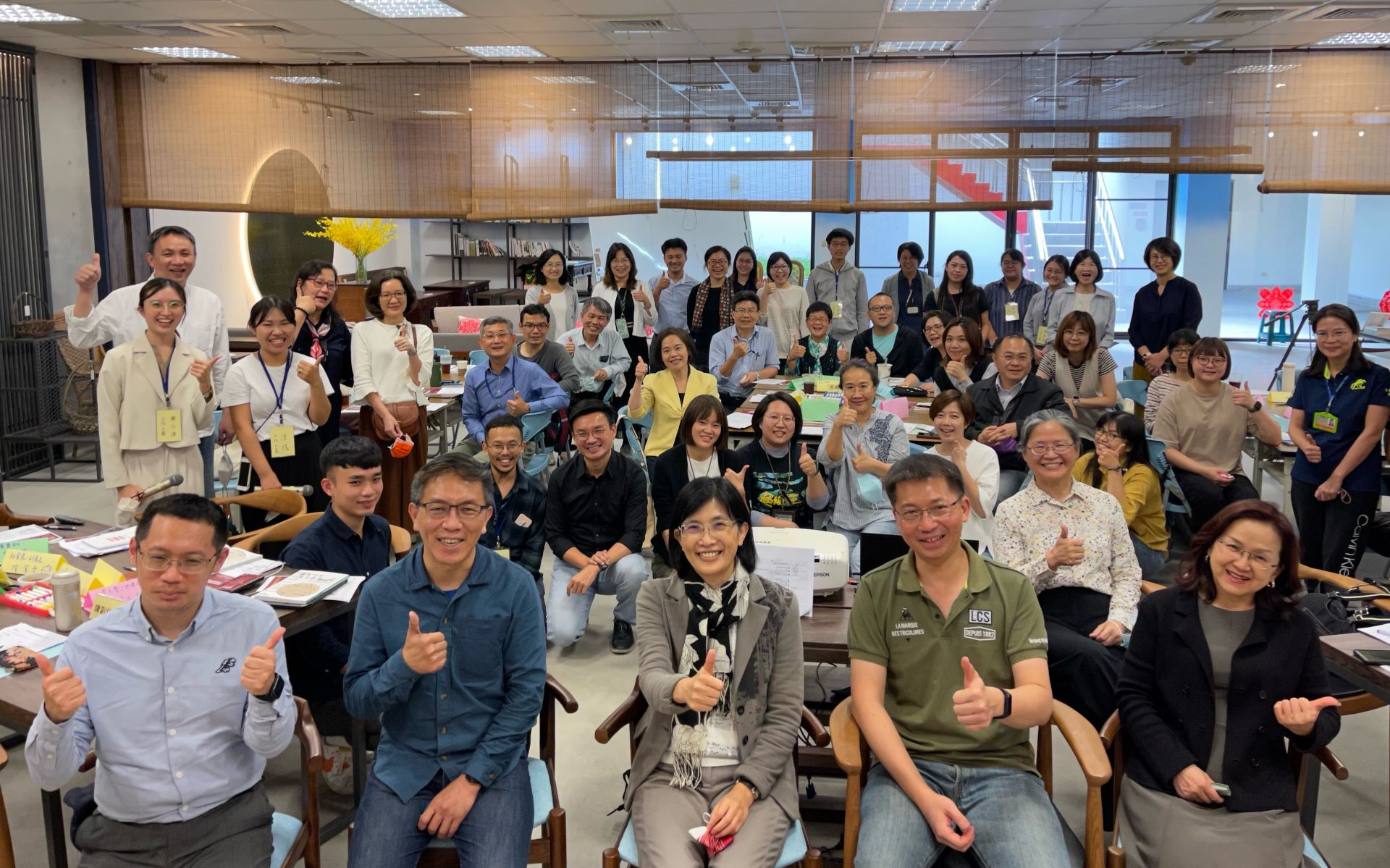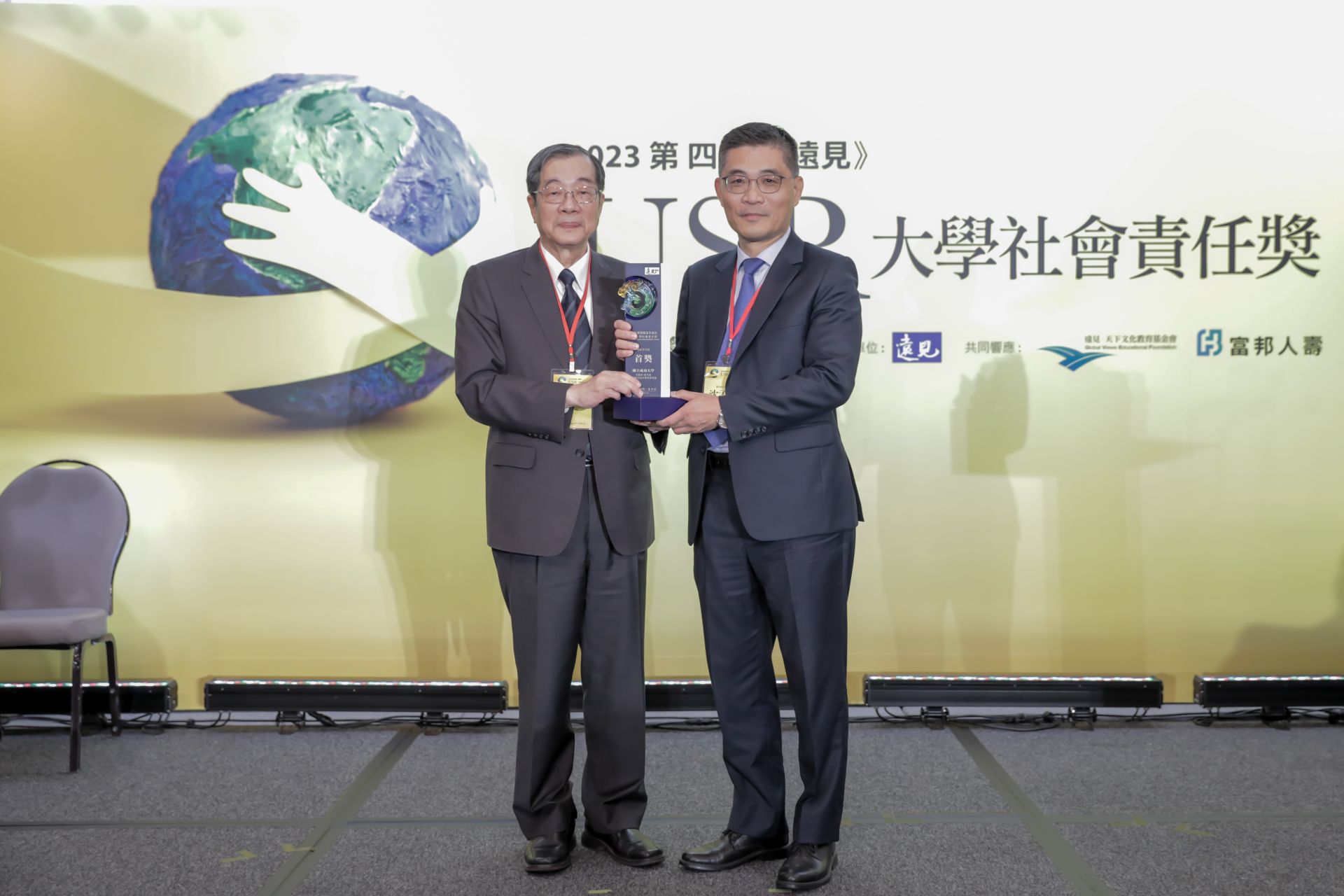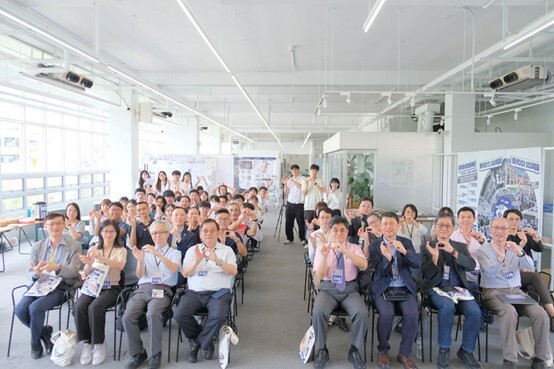SDG11
NCKU archaeology students and faculty curated an exhibit at the old Ruakai Tribe tea plantation settlement.
Professor Sasala Taiban (scopus) from the Archaeology Department at NCKU has been leading students on visits to the Ruakai Tribe's Old Tea Community for over a year. They participated in the restoration project of the traditional stone houses, which are designated national monuments for indigenous peoples. With the assistance and efforts of the local community, the project was successfully completed. On April 5, 2024, a traditional ceremony marked the completion, coinciding with the students' first-ever poster exhibition held at the Old Tea Community at an altitude of 1000 meters, showcasing both the restoration process and the results of archaeological surveys conducted in the area.
This marks the fourth visit to the Old Tea Community by Professor Sasala and his students. Starting from winter 2022, they surveyed the historical site of the Ruakai Tribe's Old Tea Community in Wutai Township, Pingtung County. In spring and winter 2023, they returned to understand how indigenous people rebuilt traditional stone houses. Students observed, photographed, and documented the reconstruction process, participating in tasks like basic house foundation preparation and stone classification, gradually deepening the connection between NCKU and the Old Tea Community.
On April 5, 2024, during their fourth visit, students participated in the traditional ceremony for the completion of the houses and organized the first-ever poster exhibition at the Old Tea Community. The exhibition covered various important stages of the restoration process, including wood gathering, stone cutting, wall construction, roof beam installation, main hall floor laying, and courtyard paving. It also showcased the results of the students' archaeological surface surveys in the Old Tea Community over the past year.
The house completion ceremony began at 7 a.m., with many important figures from the Ruakai Tribe offering blessings. During the ceremony, the main priest faced the ancestral sacred ground of the Ba Lu Gu An towards the North Dawu Mountain and the Old Tea Community, offering prayers in the Ruakai language while holding a bamboo cup containing millet wine. As the sun rose from the top of Wutou Mountain, everyone present could feel the ancestral blessings on the house. The main priest then moved the fire outside the house to the stove inside. As the rising smoke and sunlight through the skylight converged, it felt as if the ancestors had brought blessings and warmth.
The house, originally Professor Sasala's home in the community, was named "Pa Lu Da Si" following the Ruakai naming tradition, which means "healthy, budding treetops," symbolizing the perpetuity of the family.
Reflecting on the experience, students expressed deep appreciation. Wei-Li Ho, who visited the community for the second time, was moved by the sunrise during the ceremony, feeling connected to the ancient daily life of the community. Hsiang-Ling Hsu, visiting for the first time, described it as a rare experience to immerse themselves in the history and wisdom of the Ruakai Tribe, experiencing tribal life alongside the local elders.
Through this course, students not only learned about the history of the Old Tea Community through literature but also experienced its culture and restoration process firsthand. By visiting the settlement, observing its appearance, and listening to elders share their childhood memories, they could imagine its past prosperity and understand why the community wanted to rebuild their homes.
The Old Tea Community's stone house settlement is a second-class historical site in Taiwan. In 2016, it was selected for the World Monuments Fund's World Monuments Watch, making it Taiwan's second world-class cultural asset and the only indigenous settlement to be listed.
This marks the fourth visit to the Old Tea Community by Professor Sasala and his students. Starting from winter 2022, they surveyed the historical site of the Ruakai Tribe's Old Tea Community in Wutai Township, Pingtung County. In spring and winter 2023, they returned to understand how indigenous people rebuilt traditional stone houses. Students observed, photographed, and documented the reconstruction process, participating in tasks like basic house foundation preparation and stone classification, gradually deepening the connection between NCKU and the Old Tea Community.
On April 5, 2024, during their fourth visit, students participated in the traditional ceremony for the completion of the houses and organized the first-ever poster exhibition at the Old Tea Community. The exhibition covered various important stages of the restoration process, including wood gathering, stone cutting, wall construction, roof beam installation, main hall floor laying, and courtyard paving. It also showcased the results of the students' archaeological surface surveys in the Old Tea Community over the past year.
The house completion ceremony began at 7 a.m., with many important figures from the Ruakai Tribe offering blessings. During the ceremony, the main priest faced the ancestral sacred ground of the Ba Lu Gu An towards the North Dawu Mountain and the Old Tea Community, offering prayers in the Ruakai language while holding a bamboo cup containing millet wine. As the sun rose from the top of Wutou Mountain, everyone present could feel the ancestral blessings on the house. The main priest then moved the fire outside the house to the stove inside. As the rising smoke and sunlight through the skylight converged, it felt as if the ancestors had brought blessings and warmth.
The house, originally Professor Sasala's home in the community, was named "Pa Lu Da Si" following the Ruakai naming tradition, which means "healthy, budding treetops," symbolizing the perpetuity of the family.
Reflecting on the experience, students expressed deep appreciation. Wei-Li Ho, who visited the community for the second time, was moved by the sunrise during the ceremony, feeling connected to the ancient daily life of the community. Hsiang-Ling Hsu, visiting for the first time, described it as a rare experience to immerse themselves in the history and wisdom of the Ruakai Tribe, experiencing tribal life alongside the local elders.
Through this course, students not only learned about the history of the Old Tea Community through literature but also experienced its culture and restoration process firsthand. By visiting the settlement, observing its appearance, and listening to elders share their childhood memories, they could imagine its past prosperity and understand why the community wanted to rebuild their homes.
The Old Tea Community's stone house settlement is a second-class historical site in Taiwan. In 2016, it was selected for the World Monuments Fund's World Monuments Watch, making it Taiwan's second world-class cultural asset and the only indigenous settlement to be listed.
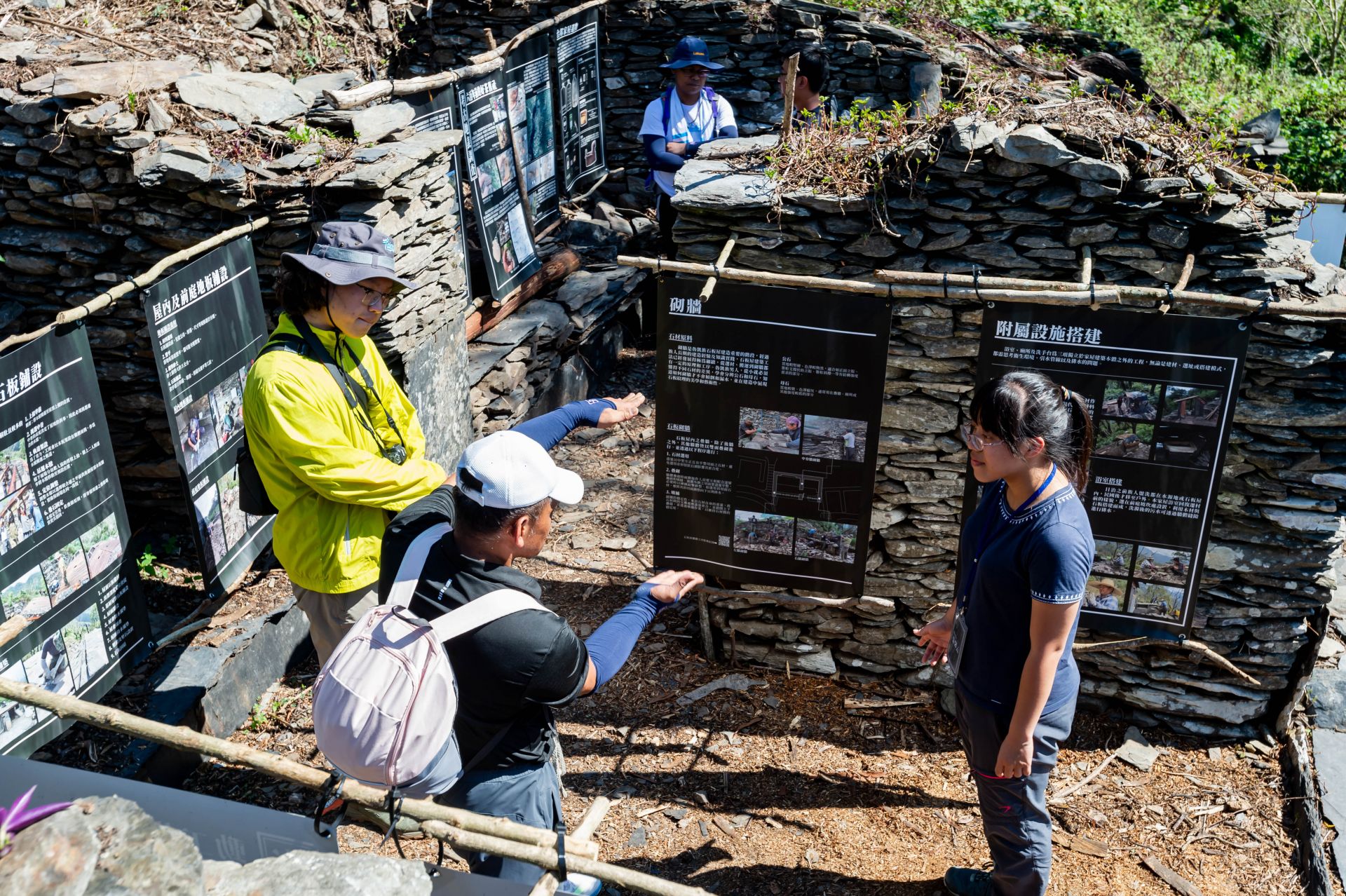
The township mayor attends the exhibition.
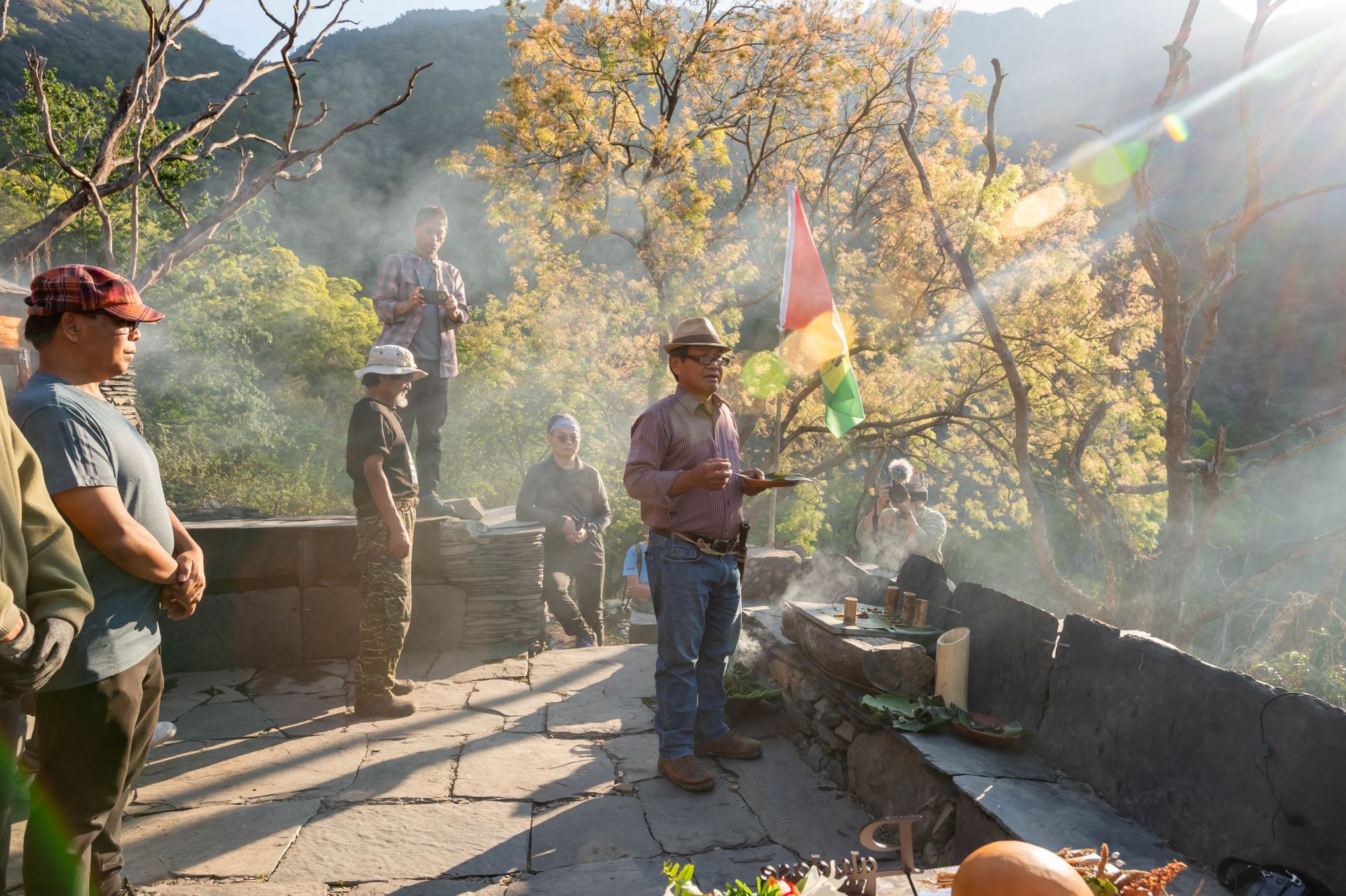
Prayer ceremony.

Blessing ceremony upon entering the house.
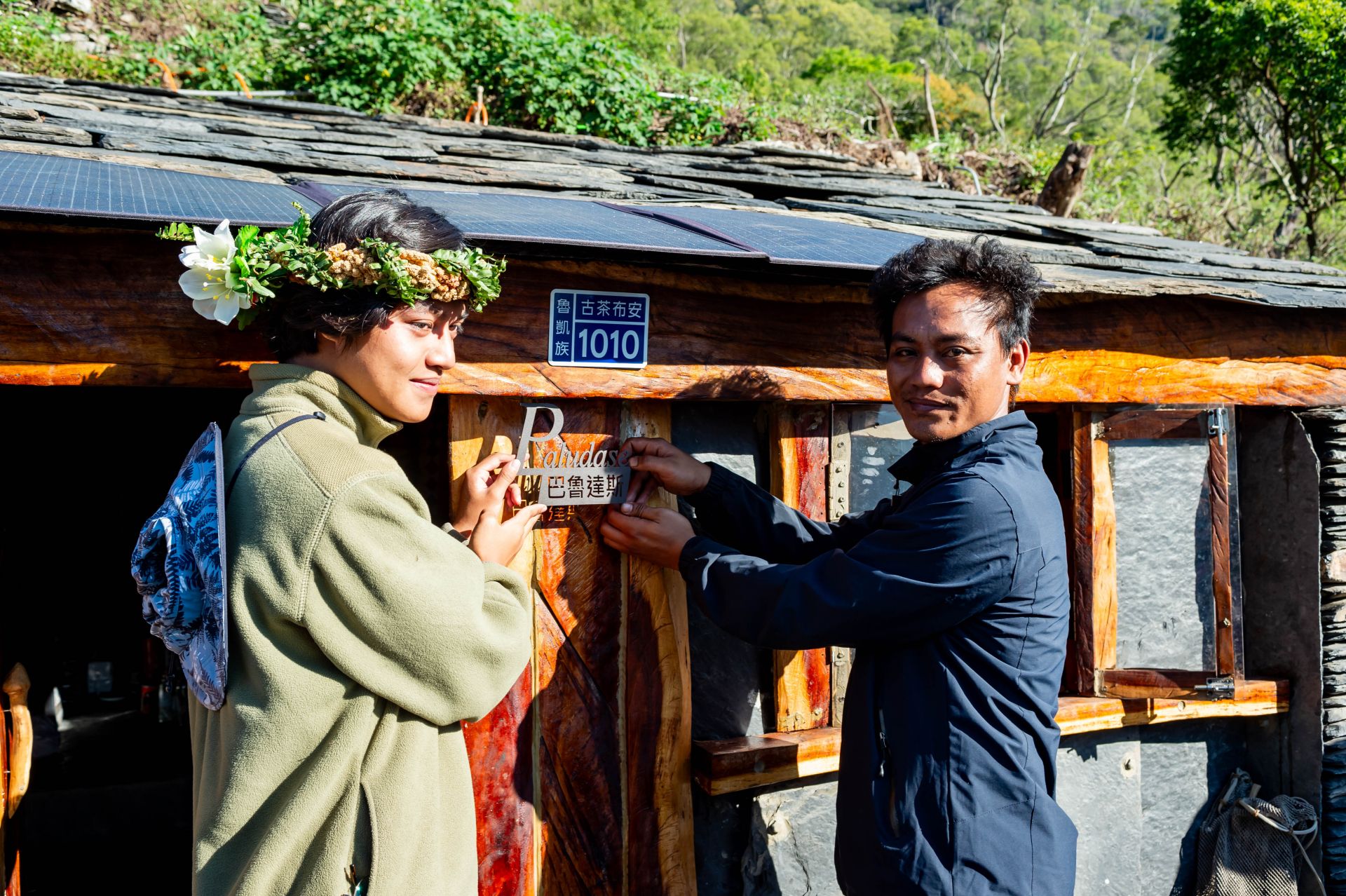
Hanging house plaque.
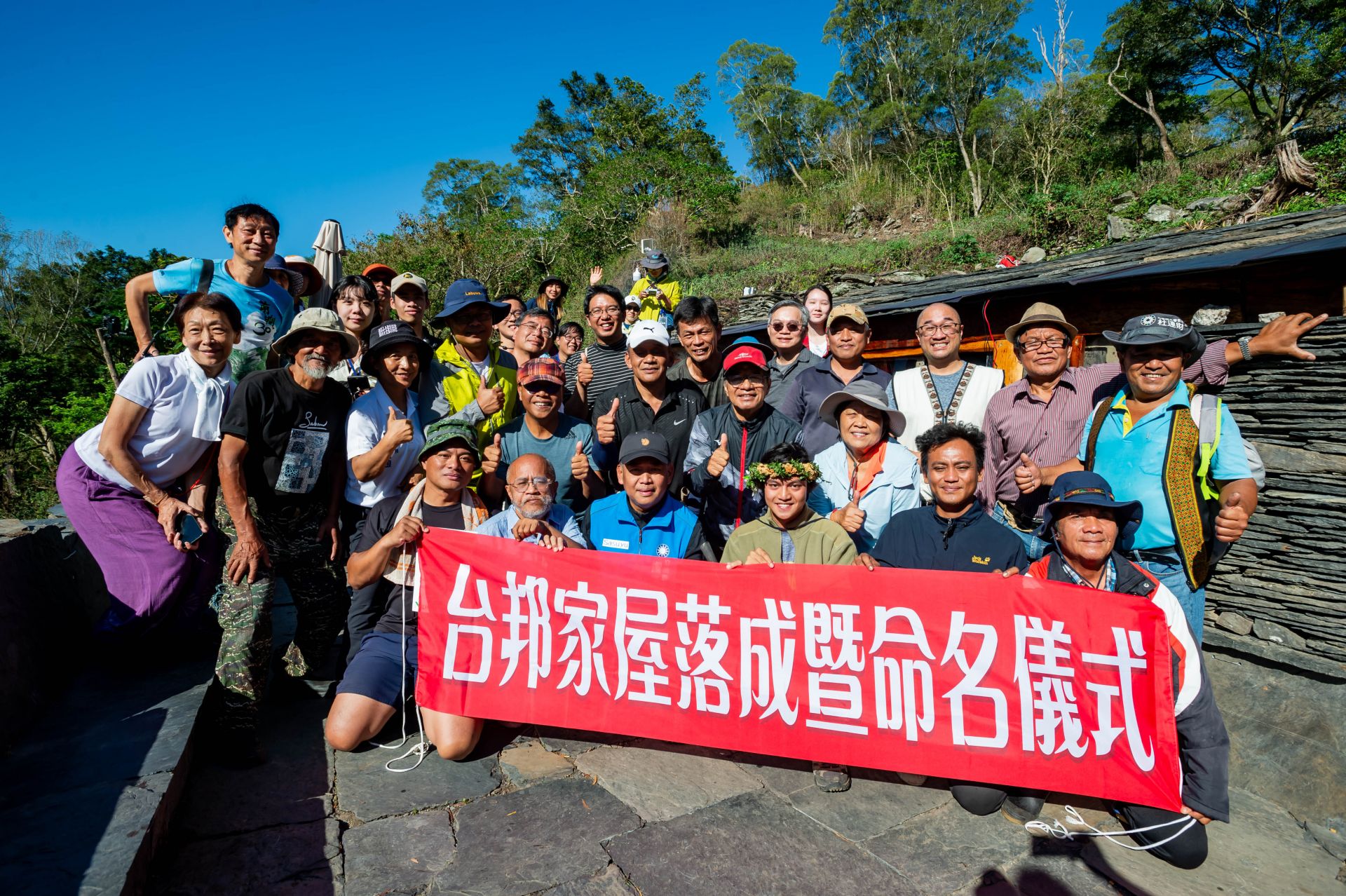
Group photo of teachers and students.



